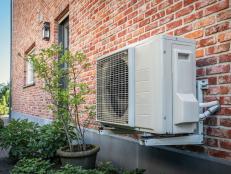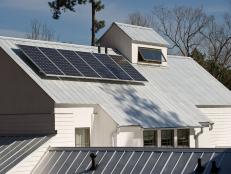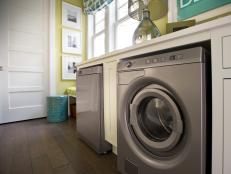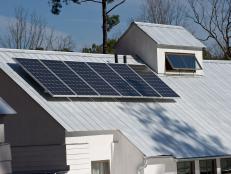Smart Meters for Your Home

If you're upgrading an existing home automation system or contemplating installing a new one, you may want to investigate smart meters for your home. Smart meter technology has been around for many years, and it allows power companies to send and receive information about a particular home, neighborhood or even an entire power grid's levels of energy use. In theory, this allows the energy supplier to more efficiently regulate its output of energy—and its consumers to monitor and better-control their own energy use. Smart meters can provide data on any systems within a home that use energy, including heating, lighting, air conditioning and appliances that use electricity, oil or gas.
Smart meter technology is viewed by proponents as a way to modernize the electrical grid system, thereby creating potential efficiencies and cost savings for both consumers and energy companies. At a basic level, smart meters allow consumers and energy companies to see how and when energy is used, by providing two-way communication with the power grid. This communication allows for analysis that can help manage energy output by power companies—and energy consumption by consumers—hopefully providing a cost savings for company and customer alike.
Smart meters most commonly collect electric and natural gas usage data from homes and businesses. To monitor the use of electricity, smart meters generally record electric usage hourly for homeowners and in more frequent increments for businesses. To monitor the use of natural gas, modules are attached to gas meters to record gas usage daily. The system periodically transmits the recorded data to the power company via a communications network that may be wireless, travel through the power lines or via radio communication. Power companies generally aggregate the information collected and then transmit it back to consumers and businesses, often with recommendations for cost and usage saving measures. For example, consumers or business owners can determine when their peak usage times are occurring and—especially if their home or business employs home automation—take steps to reduce wasteful energy consumption, potentially resulting in a cost savings.
Smart meters are not entirely without controversy. Because they transmit information in two directions—from the power company to the consumer and from the consumer to the power company—some view smart meters as an intrusion into individual privacy. Additionally, in some cases unregulated smart meter implementations have caused safety concerns. If you're contemplating a smart meter for your home, it's always a good idea to research how it will connect with your home's power grid, collect and transmit information to the power company and back to you, and assist you in creating a more efficient and economical energy use scheme.
See Also: How to Plan a Home Control System
















































